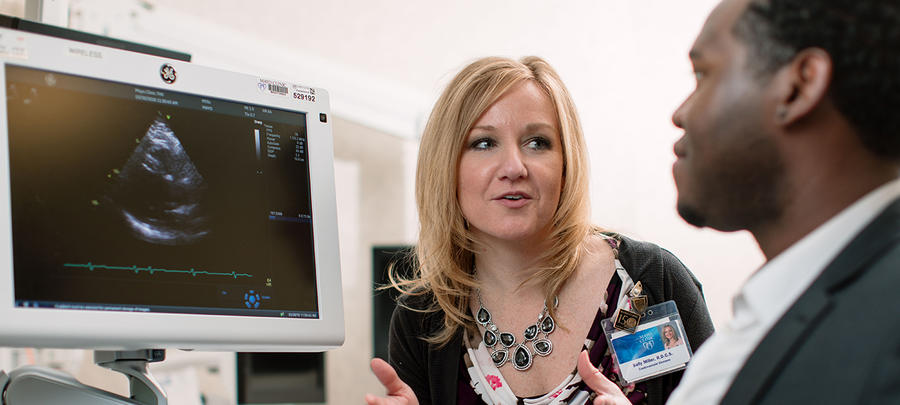The Bachelor of Science in Health Professions (BSHP) Echocardiography program
offers an exceptional educational experience by providing high-quality didactic and clinical experiences that prepares students to:
- Perform patient assessments
- Acquire and analyze data obtained using ultrasound and related diagnostic technologies
- Provide a summary of findings to the physician to aid in patient diagnosis and management
- Use independent judgment and systematic problem-solving methods to produce high-quality diagnostic information and optimize patient care
Careers
Echocardiography is the use of ultrasound to assess cardiovascular anatomy and function. A diagnostic medical sonographer specifically trained in echocardiography is a cardiac sonographer. A cardiac sonographer performs approximately six echocardiograms per day on patients. Findings are reported to the physician in charge and patient data is entered in the computer system. A typical day involves reviewing the patient's history, performing the echocardiogram examination along with blood pressure and presenting the echocardiogram findings to the physician and other allied health staff. Cardiac sonographers also help teach other student sonographers and medical residents-in-training and are expected to continually learn new technology and disease processes.
Employment
Cardiac sonographers may be employed in hospitals, clinics, private offices, and industry. Most full-time sonographers work about 40 hours a week and may have evening and weekend hours and times when they are on call and must be ready to report to work on short notice.
Job Outlook
Employment of cardiac sonographers (called cardiovascular technologists and technicians by the Department of Labor), is projected to grow 22 percent from 2014 to 2024, according to the Department of Labor. As the large baby-boom population ages, the need to diagnose medical conditions—such as blood clots and heart disease—will likely increase, according to the Department of Labor.
Salary
On average, cardiac sonographers earn an annual salary of $80,390/yr in Minnesota (data as of 2018 from the Bureau of Labor Statistics).
Non-U.S. citizen applicants
Admission is open to students in the four categories below. Therefore, visa sponsorship is not available.
- U.S. citizens
- U.S. nationals
- Lawful permanent residents
- Asylees and refugees
Learn more about the MCSHS ECHO Program and ALL UMR students must apply at UMR for admissions.
